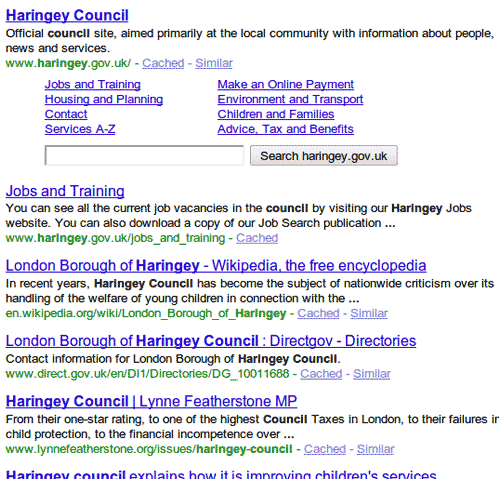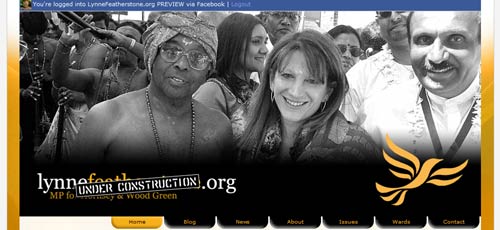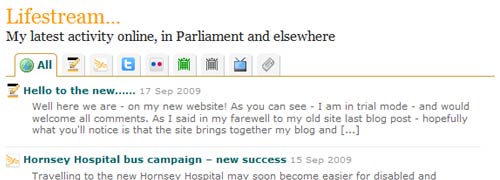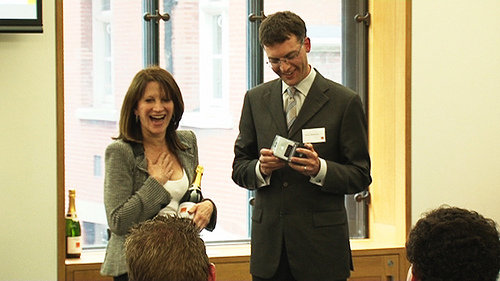
This morning, shortly before 11am. I’m sitting in the waiting room at the local GPs’ surgery. Nothing serious; just a routine appointment for a family member. Things are running a bit late, as usual, so I casually start looking at Twitter.
An event about the internet and the election? Ah well, another of those London events I never get to attend. A report being published? Cool, I’ll read it tonight. Some awards? Always worth a look. I wonder who’ll win. Oh look, somebody’s leaked the results. Er… it appears I’ve won. And the train I need to catch is in 15 minutes. So, dedicated family man that I am, I abandon said family member in the waiting room, and (literally) make a run for the station.
The event marked the publication of Anthony Painter‘s excellent – although perhaps too diplomatic? – analysis of the digital election, brought to you in association with Orange. Whilst much of its content will be familiar to anyone reading this, there will certainly be a few examples you won’t previously have heard of. Well worth a read.
And I’m delighted to note that Puffbox client Lynne Featherstone was the unanimous winner of the day’s big award, for Best Use of Digital Campaigning by a Candidate, ahead of Anthony Calvert’s (ultimately unsuccessful) ‘castration’ attempt, and Walthamstow’s media-savvy Labour MP, Stella Creasy.
Anthony’s report is wonderfully complimentary about our work on Lynne’s site:
On every level, Lynne Featherstone’s campaign site excelled: design, engagement, relevance, information. It featured a ‘Lifestream’, which was basically a live feed of all of Featherstone’s social media and web engagements… Her campaign secured a swing of almost 4% against Labour against a national swing of 3.5% (though in London the swing from Liberal Democrat to Labour was only 1.25% so it’s an even better performance by that measure.)
In a brief chat afterwards, I couldn’t resist reminding Lynne that, at one of our first meetings, I’d promised we would deliver a website which would win awards. I’d said that because I’d meant it: an all-too-characteristic moment of wild optimism on my part. We’d actually had our eye on the then-annual BCS Awards for MPs’ websites; but they were cancelled last year… so this news comes as quite a relief, actually!
Lynne was very complimentary about me in her remarks; compliments I’m happy to return (and more). The site was designed entirely around her – her activities, her personality, her narrative, for want of a better word. I’ve since had a good number of enquiries from people asking ‘could we have a website just like Lynne’s’ – and I’ve said ‘no’ every time. (We’ve generally then gone on to design something equally attractive, but more appropriate.)
Once again, I must thank Jonathan Harris, who worked with me on the concept and design; and Mark Pack, who looked after a lot of the technical stuff at the constituency end – not to mention Helen Duffett and others on Lynne’s team. They’re a genuinely great bunch, and all deserve a slice of the recognition.
I can’t tell you how chuffed I am about this. And if I’d promised to do something for you today: sorry.

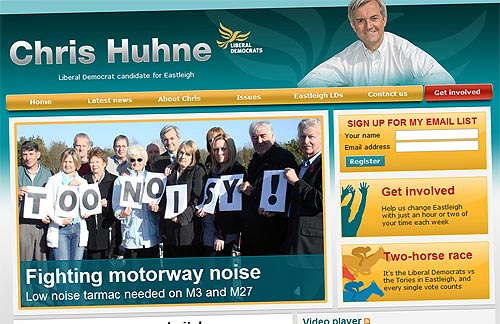
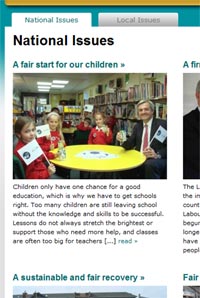 We’ve gone for a high-impact homepage, with a large image carousel highlighting a number of key local issues: and as with Lynne Featherstone’s site, each issue has its own explanatory page which can act as a hub for related posts. Unlike Lynne though, a large proportion of Chris’s work is at national level – so we’ve gone for a
We’ve gone for a high-impact homepage, with a large image carousel highlighting a number of key local issues: and as with Lynne Featherstone’s site, each issue has its own explanatory page which can act as a hub for related posts. Unlike Lynne though, a large proportion of Chris’s work is at national level – so we’ve gone for a 